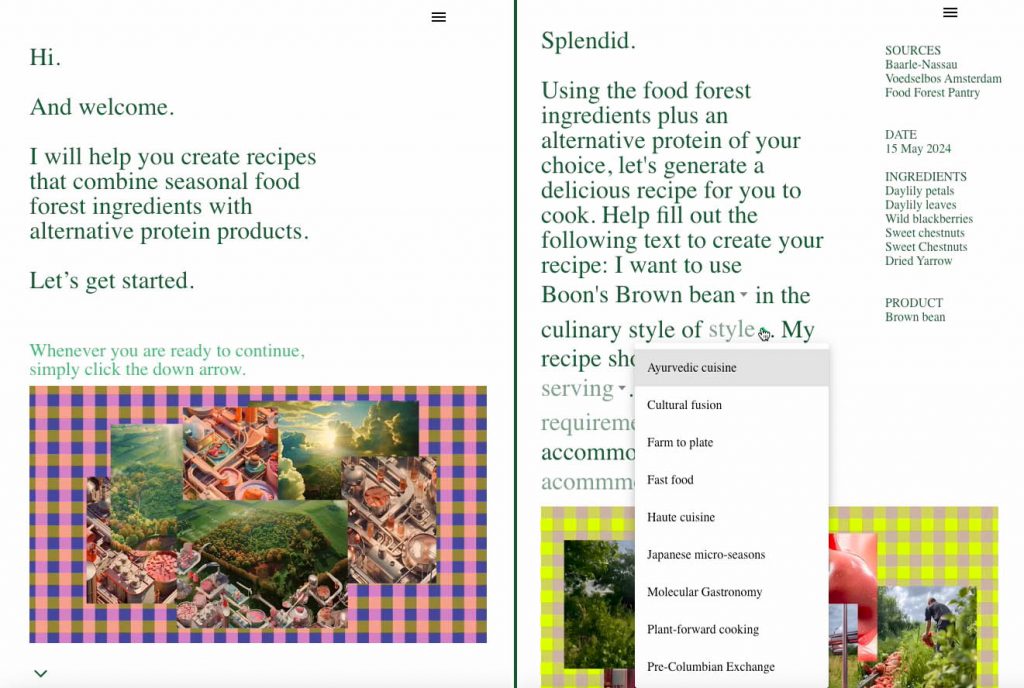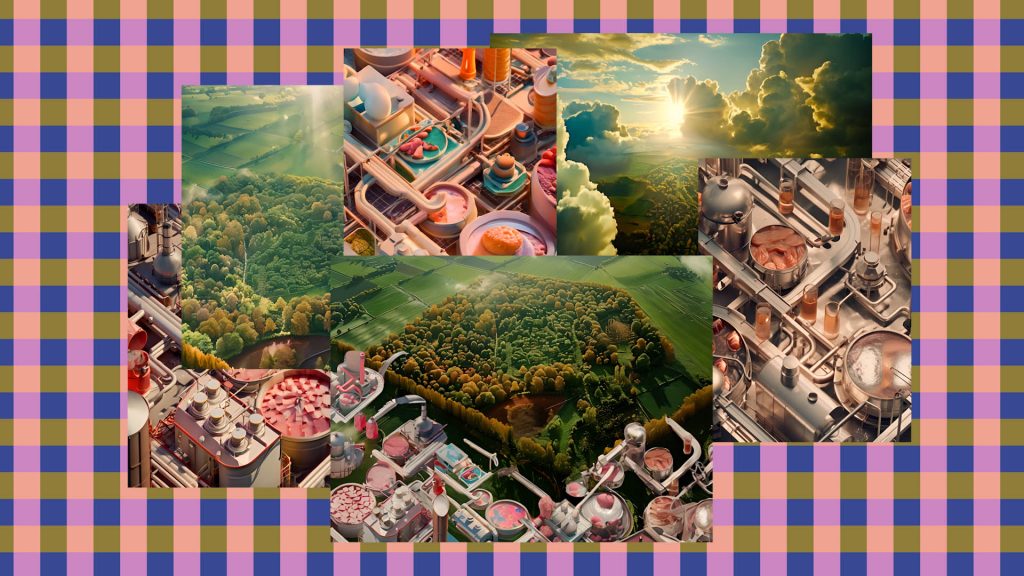HUNGRY ECOCITIES : Humanizing Technology Experiments
+ MVPxFFF
Blending Technology and Nature in Future Foodscapes
The MVPxFFF Food Computer is a prototype recipe generation tool based on the expected harvest data of food forests and alternative protein producers, generating ecologically-minded and nutritionally-complete recipes based on what is available in combination with user preferences.
INNOVATION RELEVANCE
Focusing on the benefits of food forests for sustainable agriculture, food forests contribute significantly to sustainable food production in several ways: (1) by mimicking natural ecosystems in multiple layers of plants, the diversity enhances ecological resilience and supports biodiversity. (2) minimal soil disturbance promotes soil health and enhances microbial activity. (3) plants capture and store carbon in their biomass and the soil, contributing to climate change mitigation. While food forests may not replace large-scale agriculture entirely, they offer a sustainable and productive model for local food production, particularly in urban and suburban areas. Expectations are that it can deliver 5% of global food production by 2035 and up to 20% of fresh produce in regions actively stimulating agroforestry.
We have identified three trends: (1) community food forests in urban areas and the integration of food forest principles in urban planning is ongoing. (2) small-scale farmers adopting food forest principles to become more diverse and resilient farmers. (3) large-scale agroforestry systems can significantly contribute to regional fresh produce.
The Food Forest Flavors Computer can support all three trends, but mostly small-scale farmers who are considering adopting food forest principles on (parts) of their farms. This by offering a tool, the recipe generator, that allows consumers to select and purchase food forest produce, in combination with alternative proteins (MVP producers, including insect farms, nut farms and algae farms), to consume good food. With enough small-scale farmers and MVP producers on the tool, it could offer year-round fresh produce to consumers.

WHAT DOES IT DO
The current version is based on static data from a small number of test forests and has a partially developed user interface. The back end has been developed, meaning that the foundation to expand the offering is there. Currently, the interface is not ready for use and a next step in the model is needed to have real-time data, incorporating seasonal and climate influences and predictions.
ART RELEVANCE
Genomic Gastronomy‘s Mock Wild Picnic, part of Hungry EcoCities, reimagines sustainable food systems through AI-driven culinary experiences. The project synchronizes food forests with diverse farming methods, creating hybrid landscapes and cuisines. Central to this exploration is the MVP x FFF Food Computer, an AI tool harmonizing Minimum Viable Proteins with Food Forest Flavours. Through immersive picnic events, participants taste and debate food futures that are simultaneously high-tech and wild. Mock Wild Picnic challenges the dichotomy between technological progress and ecological preservation, offering a tangible vision of minimized harm and maximized benefits for wild species. It exemplifies innovative approaches to urban nutrition, biodiversity, and sustainability.
TEAM
Artist: The Center for Genomic Gastronomy
Studio: EatThis
Art-driven innovation: In4Art
Science: Brno University of Technology

The HungryEcoCities project has received funding from the European Union’s Horizon Europe research and innovation programme under grant agreement 101069990.
